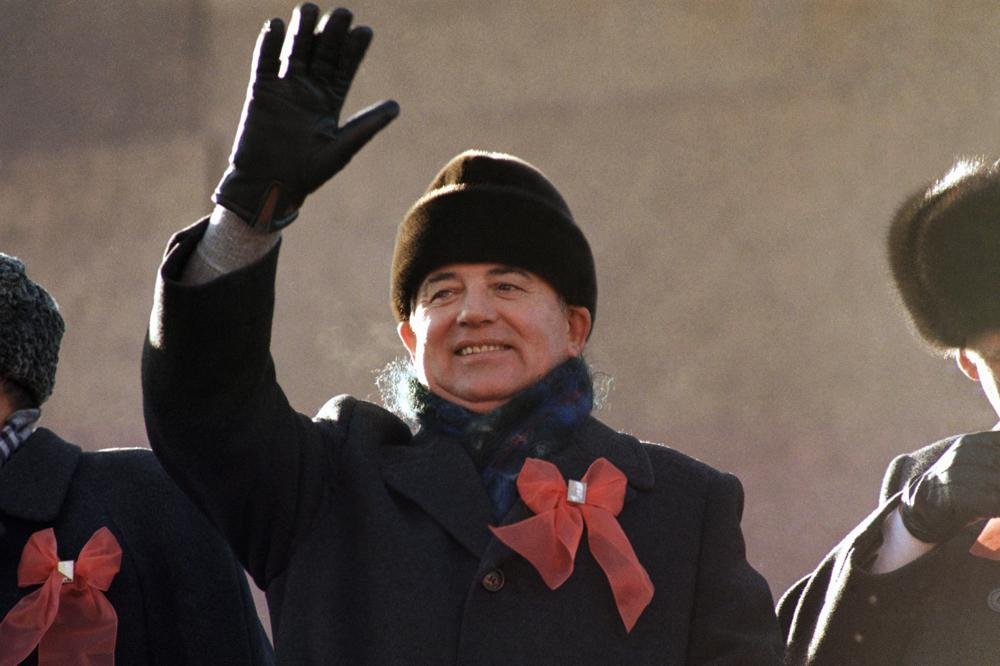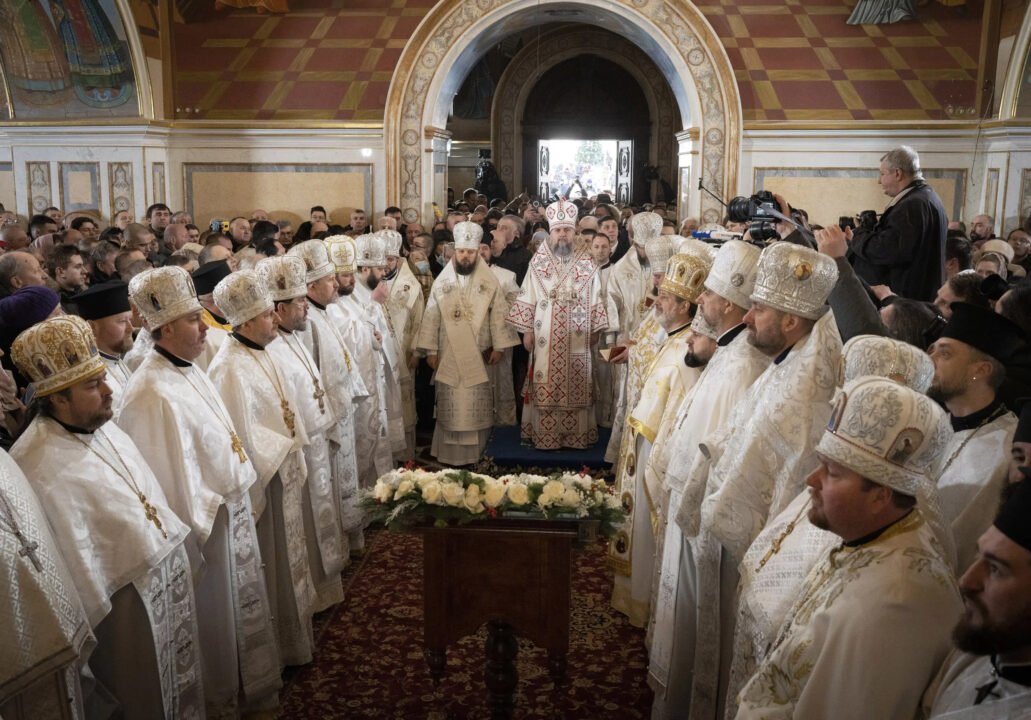Gorbachev, who as the last leader of the Soviet Union waged a losing battle to salvage a crumbling empire but produced extraordinary reforms that led to the end of the Cold War
Moscow, Aug 31: Mikhail Gorbachev, who set out to revitalise the Soviet Union but ended up unleashing forces that led to the collapse of communism, the breakup of the state and the end of the Cold War, died Tuesday. The last Soviet leader was 91.
Gorbachev died after a long illness, according to a statement from the Central Clinical Hospital in Moscow. No other details were given.
Though in power less than seven years, Gorbachev unleashed a breathtaking series of changes. But they quickly overtook him and resulted in the collapse of the authoritarian Soviet state, the freeing of Eastern European nations from Russian domination and the end of decades of East-West nuclear confrontation.
U.S. President Joe Biden called Gorbachev a “man of remarkable vision” and a “rare leader” who had “the imagination to see that a different future was possible and the courage to risk his entire career to achieve it.
“The result was a safer world and greater freedom for millions of people,” Biden said in a statement.
“Hard to think of a single person who altered the course of history more in a positive direction” than Gorbachev, said Michael McFaul, a political analyst and former U.S. ambassador in Moscow, on Twitter.
His decline was humiliating. His power hopelessly sapped by an attempted coup against him in August 1991, he spent his last months in office watching republic after republic declare independence until he resigned on Dec. 25, 1991. The Soviet Union wrote itself into oblivion a day later.
Gorbachev won the 1990 Nobel Peace Prize for his role in ending the Cold War and spent his later years collecting accolades and awards from all corners of the world. Yet he was widely despised at home.
Russians blamed him for the 1991 implosion of the Soviet Union — a once-fearsome superpower whose territory fractured into 15 separate nations. His former allies deserted him and made him a scapegoat for the country’s troubles.
His run for president in 1996 was a national joke, and he polled less than 1% of the vote. In 1997, he resorted to making a TV ad for Pizza Hut to earn money for his charitable foundation.
Gorbachev never set out to dismantle the Soviet system. He wanted to improve it.
Mikhail Sergeyevich Gorbachev was born March 2, 1931, in the village of Privolnoye in southern Russia. By age 15, he was helping his father drive a combine harvester after school and during the region’s blistering, dusty summers.
His performance earned him the order of the Red Banner of Labor, an unusual distinction for a 17-year-old. That prize and the party background of his parents helped him land admission in 1950 to the country’s top university, Moscow State.
There, he met his wife, Raisa Maximovna Titorenko, and joined the Communist Party.
His early career coincided with the “thaw” begun by Nikita Khrushchev. As a young Communist propaganda official, he was tasked with explaining the 20th Party Congress that revealed Soviet dictator Josef Stalin’s repression of millions to local party activists.
He was elected to the powerful party Central Committee in 1971, took over Soviet agricultural policy in 1978 and became a full Politburo member in 1980.
Along the way he was able to travel to the West, to Belgium, Germany, France, Italy and Canada. Those trips had a profound effect on his thinking, shaking his belief in the superiority of Soviet-style socialism.
“The question haunted me: Why was the standard of living in our country lower than in other developed countries?” he recalled in his memoirs.
But Gorbachev had to wait his turn. Soviet leader Leonid Brezhnev died in 1982, and was succeeded by two other geriatric leaders: Yuri Andropov, Gorbachev’s mentor, and Konstantin Chernenko.
It wasn’t until March 1985, when Chernenko died, that the party finally chose a younger man to lead the country: Gorbachev. He was 54.
His tenure was filled with rocky periods, including the Soviet military withdrawal from Afghanistan and the Chernobyl nuclear disaster.
But starting in November 1985, Gorbachev began a series of attention-grabbing summits with world leaders, especially U.S. Presidents Ronald Reagan and George Bush, which led to unprecedented, deep reductions in the American and Soviet nuclear arsenals.
After years of watching a parade of stodgy leaders in the Kremlin, Western leaders practically swooned over the charming, vigorous Gorbachev and his stylish, brainy wife.
But perceptions were very different at home, where the rickety Soviet economy collapsed, bringing with it tremendous economic hardship for the country’s 290 million people.
More recently, Gorbachev veered between criticism and mild praise for current Russian President Vladimir Putin, who has been assailed for backtracking on the democratic achievements of the Gorbachev and Yeltsin eras.
While he said Putin did much to restore stability and prestige to Russia after the tumultuous decade following the Soviet collapse, Gorbachev protested growing limitations on media freedom.
Gorbachev also spoke out against Putin’s invasion of Ukraine. A day after the Feb. 24 attack, he issued a statement calling for “an early cessation of hostilities and immediate start of peace negotiations.”
“There is nothing more precious in the world than human lives. Negotiations and dialogue on the basis of mutual respect and recognition of interests are the only possible way to resolve the most acute contradictions and problems,” he said. (AP)







